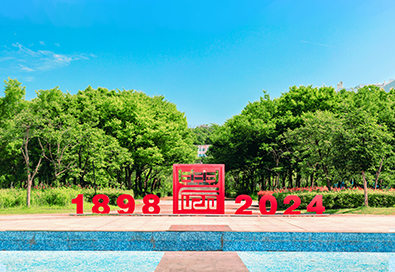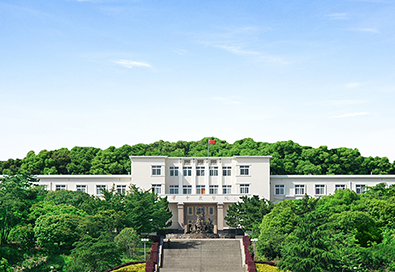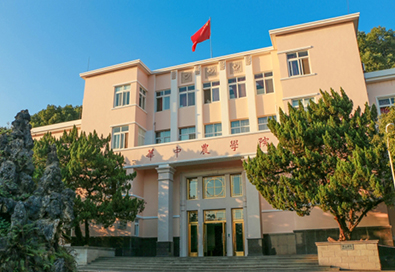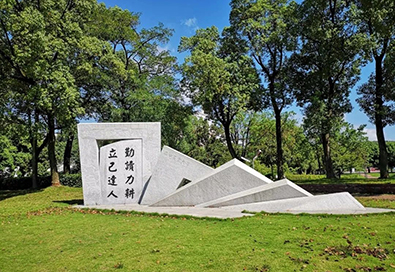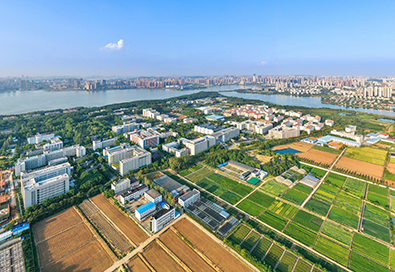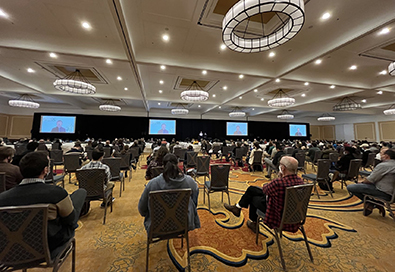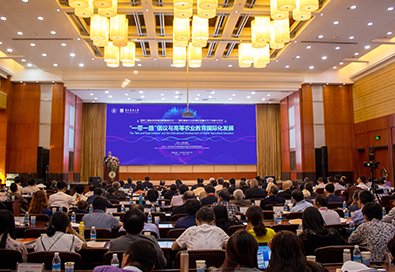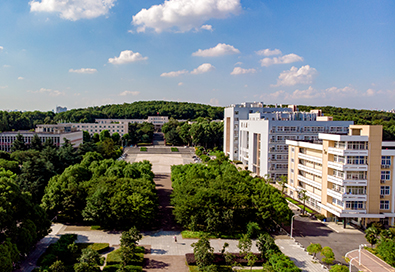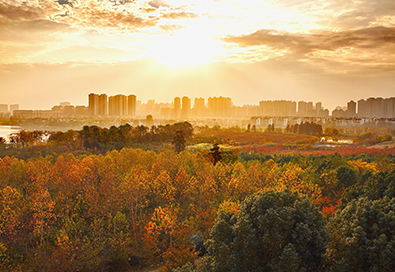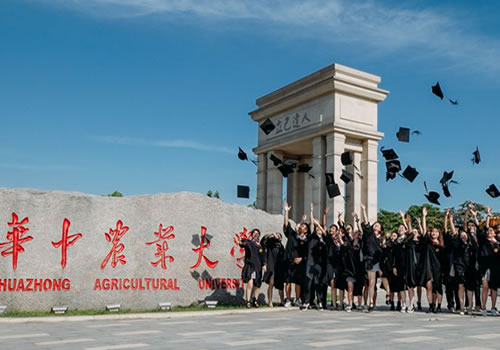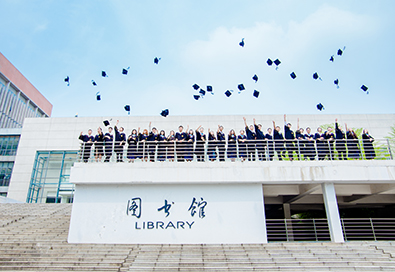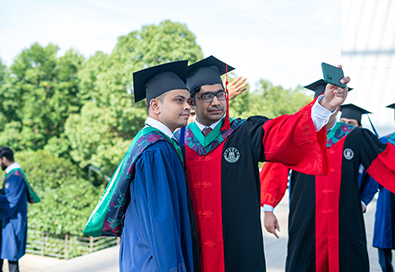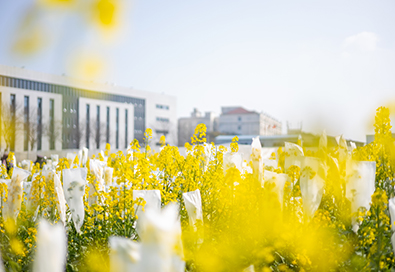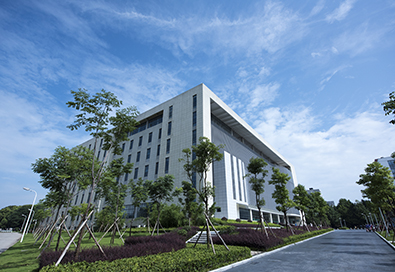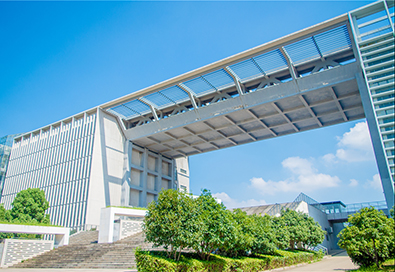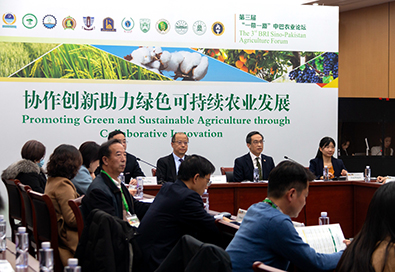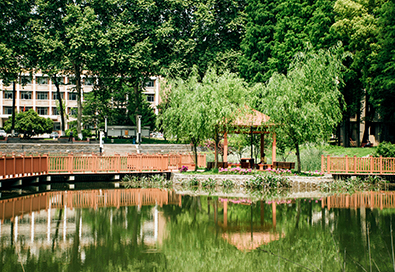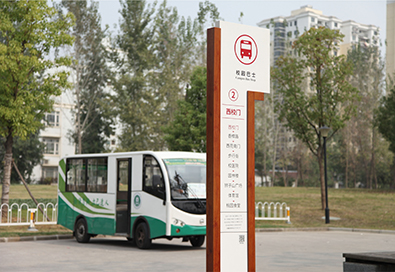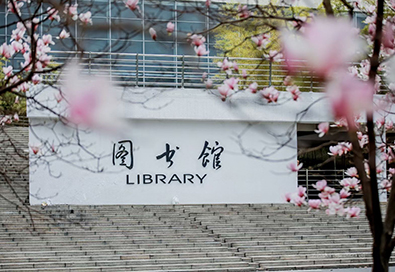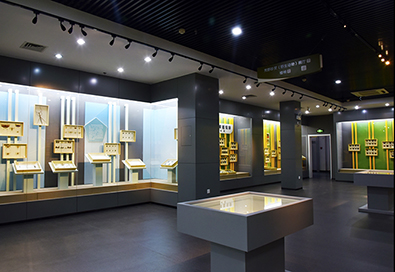From May 11 to 13, the "Swan Cup" 9th International College Students Intelligent Agricultural Equipment Innovation Competition (ICSIAEIC) took place at Shihezi University.
A total of 1,203 projects from 126 universities across 14 countries and regions competed in the final round. Twelve of HZAU's projects made it to the finals. After a rigorous evaluation process, HZAUers got two Grand Prizes (accounting for 3% of the global total), two First Prizes (6% of the global total), and four Second Prizes (13% of the global total). Additionally, HZAU was honored with the "Outstanding Cup" among ten universities worldwide.
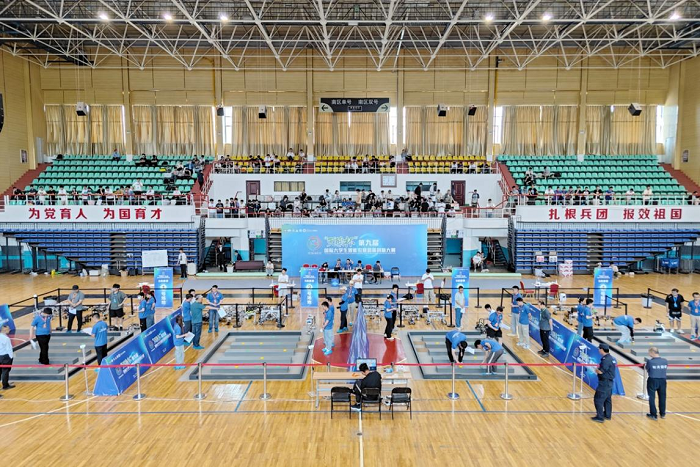
The Competition Venue (Photo/ the College of Engineering)
The projects that won the Grand Prizes were the "Intelligent Detection and Testing Platform for Key Components of Seeding Machines" and the "Efficient and Low-Damage Water Chestnut Harvesting Robot Based on the Improved YOLOv7 Algorithm".
The "Intelligent Detection and Testing Platform for Key Components of Seeding Machines" project utilized a Stewart-type parallel mechanism to design a motion frame that simulates ground slope. This innovation enhances the adaptability of seeding equipment to diverse soil, climate, and seedbed conditions, achieving real-time detection of seed and fertilizer discharge during the seeding and fertilization process. This capability meets the performance testing requirements for various discharge volumes. Undoubtedly, it earned the project the Grand Prize in the graduate category group A.
The "Efficient and Low-Damage Water Chestnut Harvesting Robot Based on the Improved YOLOv7 Algorithm" project leveraged an efficient aggregation network to significantly enhance the model's feature extraction capabilities, thereby greatly improving the accuracy of target identification. This allowed the robot to recognize and harvest water chestnuts spread on the ground after mechanical excavation, offering an excellent solution for efficient harvesting and transportation in the water chestnut industry. The project received the Grand Prize in the undergraduate category group A.
The competition was intense. On the one side, Group B's "intelligent carts" engaged in a fierce chase on the field; on the other side, Group A's students confidently presented their projects and calmly addressed the judges' inquiries.

Collaborative Efforts and Intense Preparation (Photo/ the College of Engineering)
Pre-competition preparations were also exciting. Group A's five HZAU teams conducted online tuning and on-site rehearsals, while teachers in Wuhan provided remote guidance to help students prepare their presentations and strategize for unexpected situations during the competition.
Group B's seven HZAU intelligent cart teams faced a challenge of disorientation during pre-competition simulation and tuning at the venue. However, under the guidance of their teachers, the team members calmly examined the hardware installation and software tuning, ensuring that all seven carts successfully completed their trial runs.
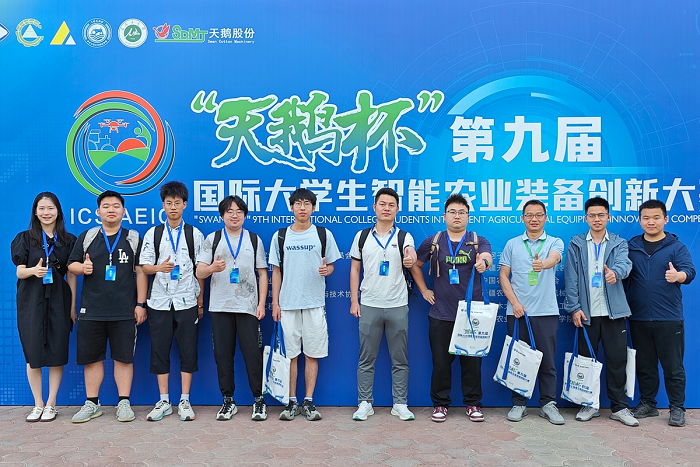
Group Photo of Participants (Photo/ the College of Engineering)
In conclusion, HZAU's Group A projects won two Grand Prizes, one First Prize, and two Second Prizes, while category B projects secured one First Prize, two Second Prizes Wei Jia, the head of the Robotics Laboratory, remarked, "Despite the distant competition venue, tight schedule, and heavy tasks, our students have admirably demonstrated the professional expertise and core competitiveness they have cultivated through their dedicated work in the laboratory, as well as the spirit of our university's students."
The "Swan Cup" 9th International College Students Intelligent Agricultural Equipment Innovation Competition is co-hosted by the International Commission on Agricultural and Biosystems Engineering, the Chinese Society for Agricultural Machinery, and other organizations. The aim is to fully harness the innovative resources of universities, research institutes, and enterprises in the agricultural equipment sector to cultivate a large number of high-quality, innovative talents who understand and are passionate about agriculture.
This competition has been successfully incorporated into the list of recognized events by the National College Students' Competition Ranking List and has evolved into the most influential competition within the realm of agricultural equipment engineering for college students.
Translated by Sun Ying
Proofread by Fu Wenyu
Supervised by Pan Buhan

